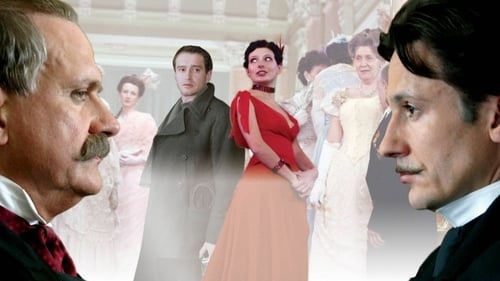
Eleven comedic vignettes featuring conversations – some important, some less so – held in restaurants over coffee and cigarettes (how quickly time flies – cigarettes are banned in Russia’s restaurants now). The conversations are candid, and even veer into the territory of murder. In the final credits, the director apologizes to Jim Jarmusch, whose work (in the anthology Coffee and Cigarettes, which Jarmusch shot in pieces over many years) Oldenburg-Svintsov is clearly indebted to. Sex, Coffee, Cigarettes’s kinship with Jarmusch’s film extends to the fact that superstars play tiny roles in almost all of the vignettes.

Maksim

Snegir
Third film based on Boris Akunin's "Priklucheniya Erasta Petrovicha Fandorina" series of novels. On a train from St. Petersburg to Moscow general Khrapov was killed and no one else but Erast Petrovich is under suspicion because the killer pretended to be Fandorin. There are initials BG on the handle of the knife Khrapov was stabbed with, the initials belong to a terrorist organization which keeps both capital cities (Moscow and St. Petersburg) in fear. This time Fandorin is not the only one trying to solve the crime, general Pozharski, a famous detective takes over the investigation...

The plot is not developed; in the film we see a man (he) and a woman (she) who, in fact, are neither connected nor familiar with each other; they casually met in hospital. "She" (Viktoria Tolstoganova) does not see that she is in danger in connection with her plan to use a tape with illegally made recordings as compromising evidence in court. "He" (Il'ia Shakunov, an actor of the Petersburg TYuZ) is a gay translator who, after the random meeting with her, is pursued by her image which frequently pops up in front of him. As a consequence, his relationship with a young boy no longer satisfies him. Both he and she lose sight of the meaning of life, because of their own inability to see others and to see love, as perception relies on proximity instead of distance.


